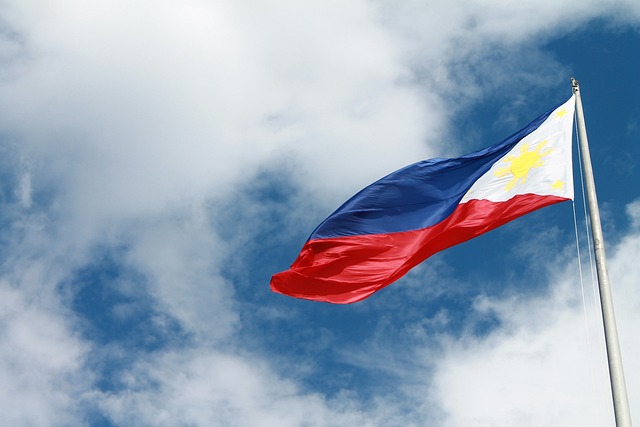Hong Kong Filipino Translation Services
Hong Kong Translation Services Filipino Translator
Filipino Translator Hong Kong
 Filipino Document Translation Service Hong Kong - Tnfast Translations provides professional Filipino translation by human translators for Hong Kong. Filipino document translations are requested for business, legal, marketing and migration purposes. Certified Filipino translation is prepared for any personal documents used for visa applications.
Filipino Document Translation Service Hong Kong - Tnfast Translations provides professional Filipino translation by human translators for Hong Kong. Filipino document translations are requested for business, legal, marketing and migration purposes. Certified Filipino translation is prepared for any personal documents used for visa applications.
Hong Kong DTP Services - With an experienced team of translators for over 60 languages, and an expert DTP team to manage any project that requires brochure typesetting, we produce fast and accurate Filipino translation for brochures, flyers and presentation slides within deadlines.
Professional Filipino Translation Services - For any document translation service request, email [email protected] to get a quote. Once payment is confirmed, the translations is usually emailed to clients within 24-48 hours for small assignments (1-3 pages).
Filipino Translation Services for Hong Kong
- Historical letters and family archive translation
- Migration translation services (NAATI / Company Certified translation service)
- Product and service brochures for multilingual translation and DTP services (Adobe InDesign / Illustrator / PowerPoint, or only PDF without working files)
- Professional desktop publishing / design services or transcription for foreign language text even when translation is not required.
- Company reports and investor updates
- Advertising and marketing translation services
Certified Filipino Translator for Hong Kong
Certified Filipino translator for Hong Kong - Our Hong Kong translator services are available to everyone, and are commonly requested for immigration use. Examples of personal documents we translate for visa applications include:
- Hong Kong Filipino Passport Translation Service
- Hong Kong Filipino Driving Licence Translation
- Hong Kong Filipino Police Report Translation
- Hong Kong Filipino Birth Certificate Translation
- Hong Kong Filipino Marriage Certificate Translation
- Hong Kong Filipino Academic Transcript Translation
- Hong Kong Filipino Business Translator
- Hong Kong Filipino Technical Translator
- Hong Kong Filipino Legal Translation Service
- Hong Kong Filipino Website Translation
- Hong Kong Filipino Divorce Certificate Translation
- Hong Kong Filipino Company Report Translation
- Hong Kong Filipino Utility Bill Translation
- Hong Kong Filipino Payslip Translation
- Hong Kong Filipino Contracts and Deeds Translation
- Hong Kong Filipino Death Certificate Translation
Filipino Translators
There is no substitute for quality Filipino translators and dedicated Filipino translation service. No matter how big or small your project is, and regardless of the subject matter, we have specialised Filipino translators and project managers overseeing the whole process to ensure the translations get delivered on time.If you are looking for certified Filipino translations for migration or business translations, look no further. Get fast and affordable Hong Kong translation services from Tnfast Translations.
Hong Kong Filipino NAATI Translation Services
NAATI Filipino Translator - We have experienced Australia-based NAATI accredited translators ready to provide you with migration translation services and personal document translation services.Filipino English Translator - The Filipino Language
Filipino, also known as Standard Filipino, is an Austronesian language. It is the national language (Wikang pambansa / Pambansang wika) of the Philippines,
While the official view (shared by the government, the Komisyon ng Wikang Filipino, and a number of educators) is that Filipino and Tagalog are considered separate languages, in practical terms, Filipino may be considered the official name of Tagalog, or even a synonym of it. Today's Filipino language is best described as "Tagalog-based"; The language is usually called Tagalog within the Philippines and among Filipinos to differentiate it from other Philippine languages, but it has also come to be known as Filipino to differentiate it from the languages of other countries; the former implies a regional origin, the latter a national.
Political designations aside, Tagalog and Filipino are linguistically the same; sharing, among other things, the same grammatical structure. On May 23, 2007, Ricardo Maria Nolasco, KWF chair and a linguistics expert, acknowledged in a keynote speech during the NAKEM Conference at the Mariano Marcos State University in Batac, Ilocos Norte, that Filipino was simply Tagalog in syntax and grammar, with as yet no grammatical element or lexicon coming from Ilokano, Cebuano, Hiligaynon, or any of the other Philippine languages. He said further that this is contrary to the intention of Republic Act No. 7104, which requires that the national language be developed and enriched by the lexicon of the country's other languages, something toward which the commission was working
Hong Kong
Located on the eastern Pearl River Delta in South China, Hong Kong serves as a special administrative region of China. With its diverse population of 7.5 million people residing within a 1,104-square-kilometre (426 sq mi) area, Hong Kong ranks as one of the world's most densely populated regions. It also stands as a significant global financial hub and is recognized as one of the world's most advanced cities.
In the aftermath of the First Opium War in 1841, Hong Kong Island was ceded by the Qing Empire to the British Empire, leading to the establishment of Hong Kong as a British colony. This territory was expanded to include the Kowloon Peninsula in 1860 following the Second Opium War and further extended in 1898 when Britain secured a 99-year lease of the New Territories. During World War II, Hong Kong was occupied by Imperial Japan from 1941 to 1945, before reverting back to British control after Japan's surrender. The entire region was handed over to China in 1997. As one of the two special administrative regions of China, the other being Macau, Hong Kong operates under distinct governing and economic systems from mainland China, in accordance with the "one country, two systems" principle.